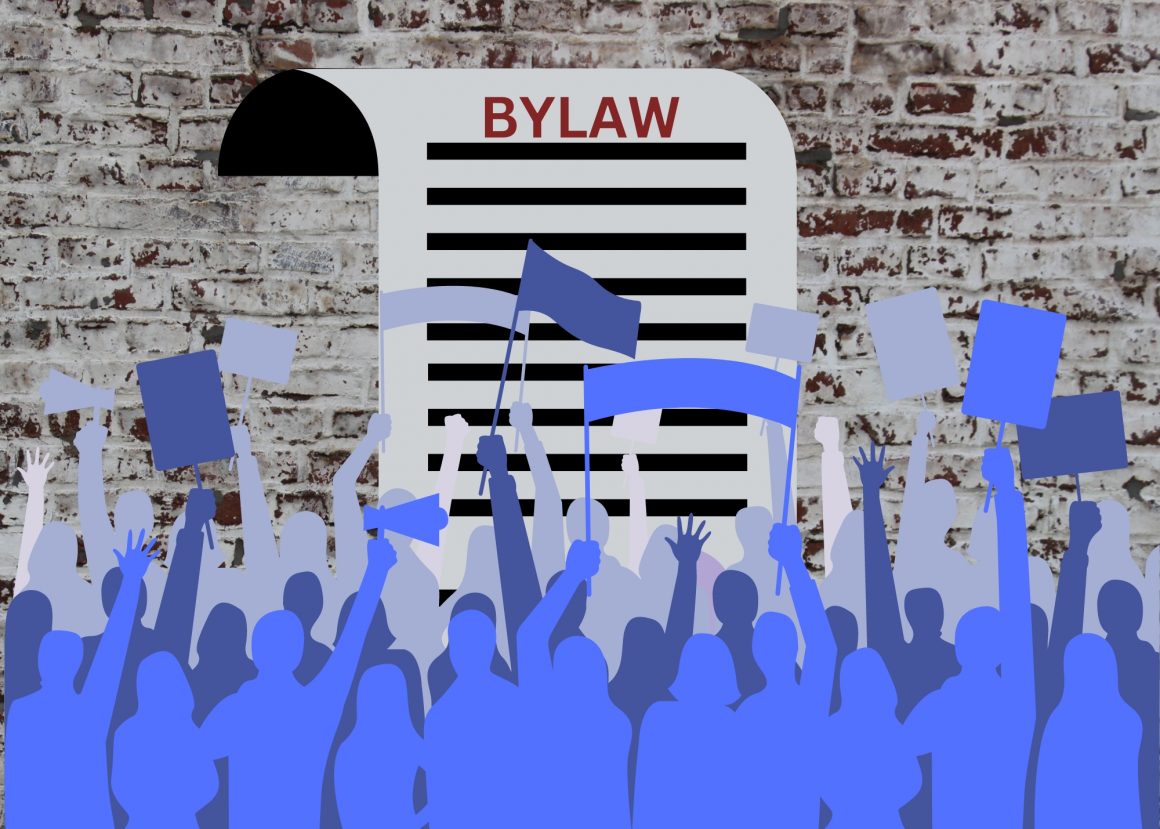
The new Safe and Inclusive Access Bylaw can have harmful consequences
By Andrew Allison, March 30 2023—
There have been at least 21 anti-LGBTQ+ protests in Calgary in 2023, which have hopefully seen their climax with the arrest of Pastor Derek Scott Reimer for causing a disturbance and mischief in what Calgary Police are calling a “hate-motivated crime.” The protest Reimer was involved in led to the cancellation of the planned Reading with Royalty drag storytime event and another protest led to the cancellation of the Chinook Blast’s Drag On Ice event.
To combat these protests, the “Safe and Inclusive Access Bylaw” was passed last week with a 10–5 vote by Calgary City Council. The bylaw would ban “specified protest,” that is, “an expression of objection or disapproval towards an idea or action related to race, religious beliefs, colour, gender, gender identity, gender expression, physical disability, mental disability, age, ancestry, place of origin, marital status, source of income, family status or sexual orientation by any means, including graphic, verbal, or written means,” within one hundred metres of libraries and recreational centres. The reason for the one-hundred-metre rule is straightforward and understandable. Calgary’s chief bylaw officer, Ryan Pleckaitis, explained that it was determined that with a one hundred metre boundary around these venues, those seeking to attend the events would be able to park and enter the building without having to face protestors.
Perhaps the passing of such a bylaw marks a change in the political era for Calgary. The city, and the province of Alberta generally, is not exactly known for its progressive political leadership. Indeed, Gondek’s election seemed to be a surprise with her being the apparent underdog to conservative opponent Jeromy Farkas. Of course, it is also possible that this progressive change is but a blip in Calgary’s otherwise conservative streak of politics. It was not too long ago that the conservative giant, Ralph Klein, headed up 716 Macleod Trail.
If this is the case, then there may be reason to worry about the municipal government’s ability to pass a law like the Safe and Inclusive Access Bylaw. Today, those seeking to defend LGBTQ+ events control the government and are the ones inside the library while those who would have these events stopped are on the outside. But tomorrow, the story might not be the same. Suppose that we had a conservative city council who wanted the Calgary Public Libraries to put on a Christian reading group for children. In there, children were taught that homosexuality was wrong and that pre-marital sex was morally impermissible. Wouldn’t this be a time when we would want to be able to protest at the location where the reading group was taking place? Wouldn’t this be a good time to make sure that parents bringing their children to such an event would have to face our criticisms directly? If such a future did arise, the City Council would not have to do anything to keep us out. If the Safe and Inclusive Access Bylaw were still in place, such a protest would already be illegal within one hundred metres of a library, as disapproval towards an idea or religious belief falls under “specified protest.”
My point is not to target the hypocrisy of the City Council; to say that they would have been opposed to restricting pro-LGBTQ+ protests while happily allowing the ones we’ve seen this year. Instead, I want to point out what it would mean to think of this as being a legitimate move by governments. If we saw ourselves facing anti-LGBTQ+ reading groups and we wanted to protest, on what grounds could we complain if the city restricted us from doing so in the very spot where the hateful reading groups were being held? It couldn’t be on democratic grounds. For today, we said that it was legitimate for a democratically elected government to enact such a bylaw.
Today, LGBTQ+ voices are being heard inside the library and those protesting those voices are on the outside. But it is not unreasonable to think that the opposite could be true in the near future. Where we stand today — what we tell governments are legitimate today — will determine what opportunities we have in the future. When we say that the Safe and Inclusive Access Bylaw is legitimate, we open the door to LGBTQ+ voices being silenced in places where we need them most, like within one hundred metres of an anti-LGBTQ+ Christian reading group.
This article is a part of our Opinions section and does not necessarily reflect the views of the Gauntlet editorial board.
